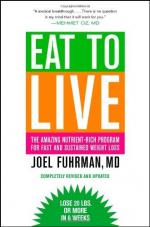|
This section contains 389 words (approx. 2 pages at 300 words per page) |
Nutrients are any chemicals required for life. Nutrients are of two basic types: (1) inorganic substances that are absorbed by autotrophic organisms, such as plants and certain microorganisms, for use in their synthetic reactions and metabolism, and (2) biomass ingested by animals and heterotrophic microorganisms as sources of organic nourishment.
Plants absorb a wide range of mineral nutrients from their environment. They utilize these nutrients in photosynthetic reactions and other metabolic processes to manufacture all of the biochemicals that they require for growth and reproduction. Nutrients required by plants in relatively large quantities are known as macronutrients, and include compounds of the following elements: carbon, hydrogen, oxygen, nitrogen, phosphorus, potassium, calcium, magnesium, and sulfur. Carbon is required in the largest amounts, typically making up about one-half of the dry weight of plant tissue, while hydrogen, oxygen, nitrogen, and calcium typically occur in concentrations of one to several percent. Phosphorus, potassium, magnesium, and sulfur account for 0.1% to 1% of dry plant tissues. Plants require micronutrients in much smaller amounts, such as the metals copper, iron, and zinc.
Animals must feed on plants or other animals to obtain virtually all of their nutrients. After it is ingested, the food is typically digested, which breaks it down into relatively simple biochemicals and inorganic chemicals, which are absorbed through the gut and used in the animal's metabolism. The most important nutritional need of animals is for energy to support their respiration and growth ( the fixed energy of plant or animal biomass is ingested for this purpose. There are also some micronutrients that animals require in small quantities, but they cannot synthesize themselves. These include biochemicals called vitamins, which must be obtained through their food. Some animals can also utilize mineral forms of certain nutrients, which may be obtained directly from the inorganic environment, without eating biomass. For example, many grazing mammals will utilize salt licks when they are available, because these animals crave sodium, which often is not present in sufficiently large concentrations in the plants that they eat.
Appropriate nutrition for all organisms is a matter of both quantity and balance. For good nutritional health, all essential inorganic and organic nutrients must be available, and they must be obtainable in an appropriate balance. A severe shortage of even a trace micronutrient can result in severe metabolic dysfunction, and even the death of organisms.
|
This section contains 389 words (approx. 2 pages at 300 words per page) |


